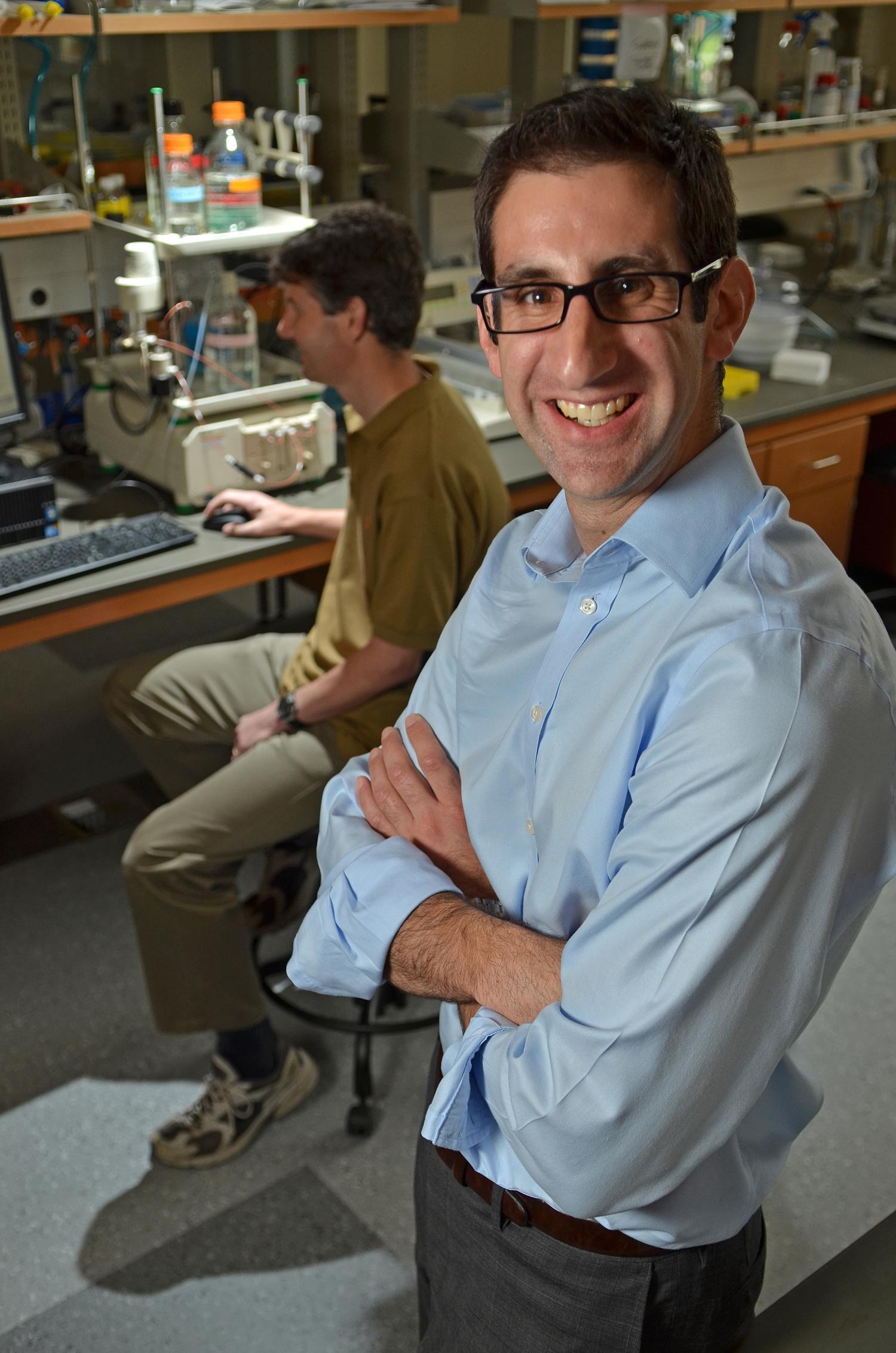Faculty Feature: Dr. Joel Kaar, Symbiotically Interfacing Proteins and Materials

How can we interface proteins with polymers to better deliver drugs to diseased tissues? Can protein properties be rationally altered to produce valuable compounds such as biofuels? How can we better detect enzymes involved in, and thereby target and combat, diseases?
“Answers to these questions lie in understanding the fundamental link between protein structure, activity, and molecular environment,” says Chemical and Biological Engineering (ChBE) Assistant Professor Joel Kaar. “Ultimately, this understanding is a requisite for designing rational strategies for incorporating proteins into materials and, more broadly, using proteins in new ways.”
Kaar’s research program at CU melds biocatalysis and biomaterial synthesis with structural biology and biophysics, all with an aim of developing novel functional materials.
In collaboration with Professor Dan Schwartz, Kaar is combining protein engineering and advanced biophysical techniques to study proteins at material interfaces. This unique research earned Kaar a 2012 Army Research Office Young Investigator Award.
“Our approach will enable individual protein molecules to be observed, thereby providing unprecedented molecular detail of the conformation, folding state, and function of proteins in near-surface environments,” explains Kaar. “This approach will ultimately provide the framework to understand how to rationally synthesize protein-containing structures with novel and sophisticated functions, including the ability to catalyze transformations, resist fouling, adapt to environmental stresses, and interact favorably with cells.”
Kaar is also investigating the use of enzymes in ionic liquids (ILs) to convert biomass to precursor materials that can be further processed into biofuels. While ILs are environmentally attractive, enzyme inactivation traditionally has been an issue. By studying the impact of ILs on enzyme structure and dynamics at the molecular level, Kaar’s group hopes to find hospitable conditions that do not adversely affect the enzyme folding states or active site plasticity. Their goal is to dramatically improve the widespread commercialization of biofuels as a sustainable fuel alternative.
An exciting new field into which Kaar hopes to embark in the future is the detection using liquid crystal platforms of enzymes that are involved in diseases. “If these enzymes can be detected, we can use these platforms to either develop new drugs or screen small-molecule libraries to find existing drugs that target these proteins,” Kaar explains.
A ChBE faculty member and affiliated member of the Molecular Biophysics Program run by Biochemistry since 2010, Kaar is uniquely positioned to benefit from interactions and collaborations with researchers from both departments.
“One of the best assets of CU is the collaborative atmosphere,” he says. “We have a unique collection of faculty that work in complimentary areas, enabling me to explore areas that may not have been accessible to me at other universities. I enjoy the collegial, open environment and my close proximity to collaborators from Biochemistry and the Biofrontiers Institute in the new building.”
Professor Kaar’s enthusiasm for his research is equaled by his passion for teaching courses such as Applied Data Analysis and Pharmaceutical Biotechnology.
Senior Korben Knudson attests, “Joel Kaar is one of the nicest and most approachable professors I’ve had. His brilliance and passion for his job are present on a daily basis and it is clear that he enjoys what he does.” Undergraduate Jhenya Natreini agrees: “(Dr. Kaar) is vibrant, has a lot of energy, and always strives to come up with the best explanation to teach students really difficult concepts.”
Between his outstanding research and enthusiastic teaching, Joel Kaar has been a welcome addition to ChBE. Visit his research page to learn more about his work.

